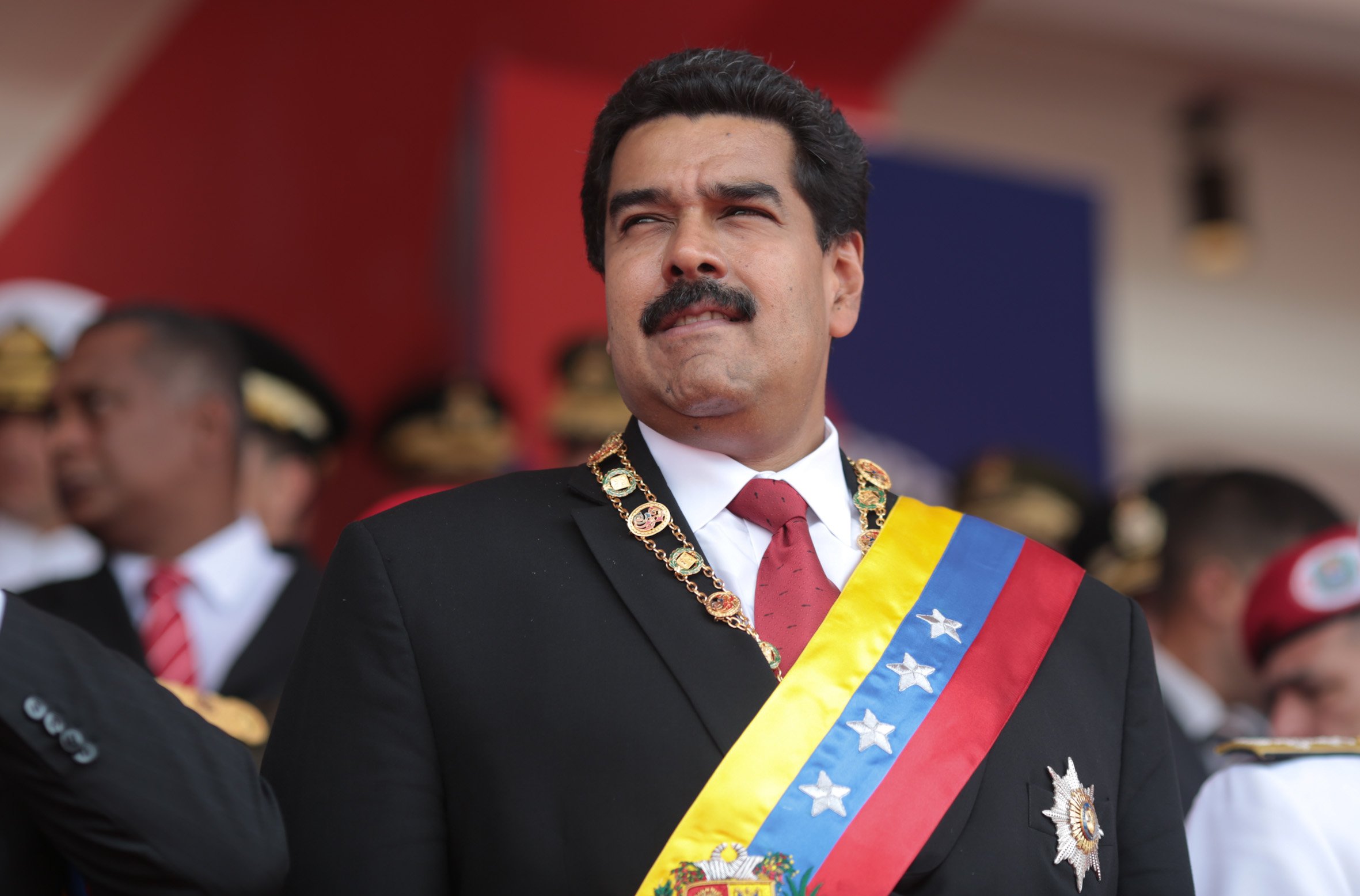Venezuelan troops fired tear gas and rubber bullets at protesters who attempted to collect a foreign aid at the border, as President Nicolás Maduro blocked the humanitarian transport from crossing from Colombia and Brazil.
On February 23, a number of people were shot with live ammunition, human rights groups say. At least two people were killed.
The opposition wants the aid to go to people hit by the economic crisis, but President Maduro sees it as a security threat.
Secretary of State Mike Pompeo condemned the attacks on civilians, which he blamed on “Maduro’s thugs”.
He said in a tweet following the clashes: “Our deepest sympathies to the families of those who have died due to these criminal acts. We join their demand for justice.”
Mike Pompeo also described the burning of some of the aid as “sickening”.
Venezuela’s opposition leader Juan Guaidó, who has declared himself interim president and helped to organize the aid, condemned the action by security forces.
Juan Guaidó, who has been recognized as leader by dozens of nations, will meet Vice President Mike Pence on February 25 in Bogota, Colombia.
Mike Pence is travelling there to meet leaders of the regional Lima Group, in spite of a travel ban imposed on him by President Maduro’s government.
Venezuela Crisis: Russia Condemns Foreign Powers for Backing Juan Guaido
Venezuela Elections 2018: Nicolas Maduro Wins Another Six-Year Term Amid Opposition Boycott
On February 23, Juan Guaidó posted a tweet which implored the international community to be “open to all options” in order to “liberate” Venezuela from Nicolas Maduro – who is continuing to resist all calls to stand down.
Juan Guaidó organized the collection of hundreds of tonnes of foreign aid at the country’s borders. He gave the government a deadline of Saturday to allow the aid to be brought into Venezuela or vowed to have volunteers march it in themselves.
In response, President Maduro partly closed the country’s borders with Brazil and Colombia, citing threats to security and sovereignty. On February 23, Venezuelans civilians attempted to cross in order to get to the aid stores, which included food and medicine.
Images from crossing points across Venezuela showed security forces firing tear gas at volunteers. Protesters burned outposts and threw projectiles at soldiers and riot police.
Rights groups say at least two people, including a 14-year-old boy, were shot dead in the clashes in Santa Elena de Uairen, near the country’s border with Brazil. Another two were reported to have been killed on February 22.
Amnesty International has described the use of firearms against protesters as a serious human rights violation and a crime under international law.
There have also been reports of several aid trucks being burned – something Juan Guaidó said was a violation of the Geneva Convention.
At about 19:00 local time on February 23, Colombia’s government estimated the number injured at border crossings to be about 300. Journalists at the scene have reported severe injuries among protesters, including several who appeared to have lost their eyes.
Venezuelan troops fired tear gas and rubber bullets at protesters who attempted to collect a foreign aid at the border, as President Nicolás Maduro blocked the humanitarian transport from crossing from Colombia and Brazil.
On February 23, a number of people were shot with live ammunition, human rights groups say. At least two people were killed.
The opposition wants the aid to go to people hit by the economic crisis, but President Maduro sees it as a security threat.
Secretary of State Mike Pompeo condemned the attacks on civilians, which he blamed on “Maduro’s thugs”.
He said in a tweet following the clashes: “Our deepest sympathies to the families of those who have died due to these criminal acts. We join their demand for justice.”
Mike Pompeo also described the burning of some of the aid as “sickening”.
Venezuela’s opposition leader Juan Guaidó, who has declared himself interim president and helped to organize the aid, condemned the action by security forces.
Juan Guaidó, who has been recognized as leader by dozens of nations, will meet Vice President Mike Pence on February 25 in Bogota, Colombia.
Mike Pence is travelling there to meet leaders of the regional Lima Group, in spite of a travel ban imposed on him by President Maduro’s government.
On February 23, Juan Guaidó posted a tweet which implored the international community to be “open to all options” in order to “liberate” Venezuela from Nicolas Maduro – who is continuing to resist all calls to stand down.
Juan Guaidó organized the collection of hundreds of tonnes of foreign aid at the country’s borders. He gave the government a deadline of Saturday to allow the aid to be brought into Venezuela or vowed to have volunteers march it in themselves.
In response, President Maduro partly closed the country’s borders with Brazil and Colombia, citing threats to security and sovereignty. On February 23, Venezuelans civilians attempted to cross in order to get to the aid stores, which included food and medicine.
Images from crossing points across Venezuela showed security forces firing tear gas at volunteers. Protesters burned outposts and threw projectiles at soldiers and riot police.
Rights groups say at least two people, including a 14-year-old boy, were shot dead in the clashes in Santa Elena de Uairen, near the country’s border with Brazil. Another two were reported to have been killed on February 22.
Amnesty International has described the use of firearms against protesters as a serious human rights violation and a crime under international law.
There have also been reports of several aid trucks being burned – something Juan Guaidó said was a violation of the Geneva Convention.
At about 19:00 local time on February 23, Colombia’s government estimated the number injured at border crossings to be about 300. Journalists at the scene have reported severe injuries among protesters, including several who appeared to have lost their eyes.
